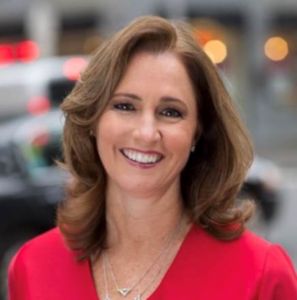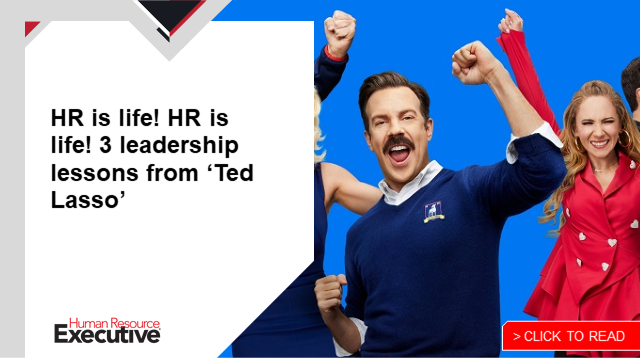This month, Melissa Cee is celebrating her one-year anniversary as chief talent officer at Littler, the largest management-side employment and labor law practice in the world. In that time, she has led the firm’s development of a return-to-office plan, anchored in employee feedback, and worked to maximize the talent potential of the Great Resignation, among many other focuses.
She has also helped elevate the HR function as a strategic driver of success at the quick-growing organization. In the past decade, the firm has doubled in size, which—coupled with the realities of the candidate- and employee-driven market along with a change in leadership—highlighted the need for a dedicated talent lead. The inaugural role was a natural move for Cee, who came to Littler after a decade of HR leadership at TIAA and having held other top HR positions at Cain Bros., Merrill Lynch and more in the last 30 years.
Now, as the war for talent reaches a record pace, Cee is focused on ensuring Littler is a destination for top legal talent—a feat that may involve capturing the “goosebump moments,” as Cee recently explained to HRE.
HRE: You are Littler’s first chief talent officer. From your perspective, how did Littler evolve to create this position?

Cee: When I started talking with Littler in fall of 2020, it was clear that the leadership team sought to refresh the programs and opportunities for talent as the firm continues to grow and diversify its offerings to serve clients. Notably, the firm was also preparing for the planned leadership transition from co-managing directors Tom Bender and Jeremy Roth to Erin Webber (who became managing director in January 2021). That meant there was a lot of change already underway—but the firm moved forward with creating this position as they understood the need to have someone focused on talent.
It also took place against the backdrop of major changes in recruiting and retention. We used to live in a world in which hiring typically involved interviewing someone and deciding whether they were a good fit. Now, talent is more in the driver’s seat and organizations need to have offerings and opportunities that candidates are looking for—as well as something that is now table stakes: flexibility. While that is a word that has been overused over the past two years, we’ve seen how important being flexible and nimble has been during the pandemic. And now, we’re seeing how important it is in the competition for talent.
HRE: What was your first priority when you took on the role, and how has that shifted to today?
Cee: My priority was quickly understanding Littler, its culture and the legal industry after moving over from the financial services sector. That meant meeting people (virtually), listening and asking lots of questions. It quickly became clear just how unique the culture is at Littler and I started to see first-hand why people are attracted to, and stay at, the firm.
 Listening was also on the agenda for Littler. One of the firm’s key priorities, when I joined in April 2021, was to create a plan for returning employees to our offices. To do this effectively, we partnered with global workplace consulting firm Gensler on 18 focus groups with 226 participants—including attorneys, office professionals, corporate staff and senior leaders.
Listening was also on the agenda for Littler. One of the firm’s key priorities, when I joined in April 2021, was to create a plan for returning employees to our offices. To do this effectively, we partnered with global workplace consulting firm Gensler on 18 focus groups with 226 participants—including attorneys, office professionals, corporate staff and senior leaders.
What we learned led to Littler adopting a hybrid work model that combines the best of the in-office environment and the best of the remote work environment. Of course, the Delta and Omicron variants had other plans that delayed the timing of that model being implemented, but the feedback has been critical to developing an approach that supports the preferences of our talented team.
Click here to read more Insights from a CHRO.
HRE: How has the pandemic impacted Littler’s recruiting strategy? Are there any shifts that you envision will remain long-term?
Cee: The biggest change is that recruiting has moved beyond simply being about job title and compensation. Another shift has been a move to more active recruiting because the people we’re hoping to bring in may be happily employed elsewhere. To convince them to join us, we need to communicate all the amazing aspects of our culture, which can be challenging until you have the opportunity to experience it. We need to be able to articulate why people choose and stay at Littler—what I refer to as “goosebump moments.”
Our return-to-office focus group sessions unveiled some of these really moving stories about what makes Littler unique and how the firm has supported people in their greatest times of need. We have since held listening sessions with groups of attorneys as part of updating our recruiting strategy. This brought forth a set of pillars that truly showcase the benefits of working at Littler that now guide how we communicate the experience to candidates.
Related: Will recruiting require both AI and the human touch?
HRE: How is Littler approaching the “Great Resignation,” particularly when it comes to company culture?
 Cee: At Littler, we actually use the term the “Great Re-Evaluation of Priorities,” as people are seeking roles that align with their professional interests and skillsets, along with their desire for greater choice and balance.
Cee: At Littler, we actually use the term the “Great Re-Evaluation of Priorities,” as people are seeking roles that align with their professional interests and skillsets, along with their desire for greater choice and balance.
One key component of this is offering employees more ownership over their career trajectories. On the attorney side, the shareholder track may not be the desired path for everyone, and we are focused on providing career options based on an individual’s professional goals, preferences and personal lives. We have several areas of our firm in which they can develop a specialty and various roles beyond the traditional associate-to-shareholder track.
One of our attorneys said it perfectly recently: “Rather than having to fit into Littler, you can make Littler fit into your own life.”
HRE: The pandemic has put HR in the spotlight at many organizations. How does this compare to HR’s role when you started in the industry? What are a few of the skills essential for success for modern CHROs, and how do you hone those skills in your own work?
Cee: It’s night and day. When I started my career, HR was a department that people went to when they needed something like a benefits form or clarification about their paycheck. Today, heads of HR sit at the right hand of the CEO and are a critical part of executive leadership. Just as it’s important to take care of the financials, it’s critical that someone in a position of leadership is managing how we take care of people—and smart organizations have really embraced that thinking.
As a result, active listening is probably more important than it’s ever been for HR leaders, but they must also have a strong business acumen. You need to know what success looks like—and what a setback looks like—as the best HR leaders are really business leaders who specialize in HR and talent. They need a deep understanding of the firm’s day-to-day business needs and they can’t be shy about speaking up. When you get a seat at the head table—as many HR executives have these days—you need to be ready to be courageous.
HRE: What has been the high point of your career thus far?
 Cee: I take a lot of pleasure from moments when I can see someone I have mentored grow and develop. Watching others succeed and move up in their careers is always what has created the goosebump moments for me.
Cee: I take a lot of pleasure from moments when I can see someone I have mentored grow and develop. Watching others succeed and move up in their careers is always what has created the goosebump moments for me.
I was drawn to Littler because it’s an organization that embraces this kind of thinking. From its various mentorship programs to its culture of continuous improvement, Littler helps its people shape and develop careers—really, as soon as they walk in the door. It’s also common to see the formation of lifelong friendships that go well beyond the workplace. An important part of this is trust that their colleagues can be depended on in times of need; trust that their colleagues’ intellect and experience are readily available to help serve their clients; and trust that Littler’s culture will be welcoming, inclusive, open-minded and supportive.
Looking back over the last year and thinking about the uncertainty of starting a new role in the midst of a pandemic, it’s so gratifying to know that I absolutely made the right decision in joining Littler.

